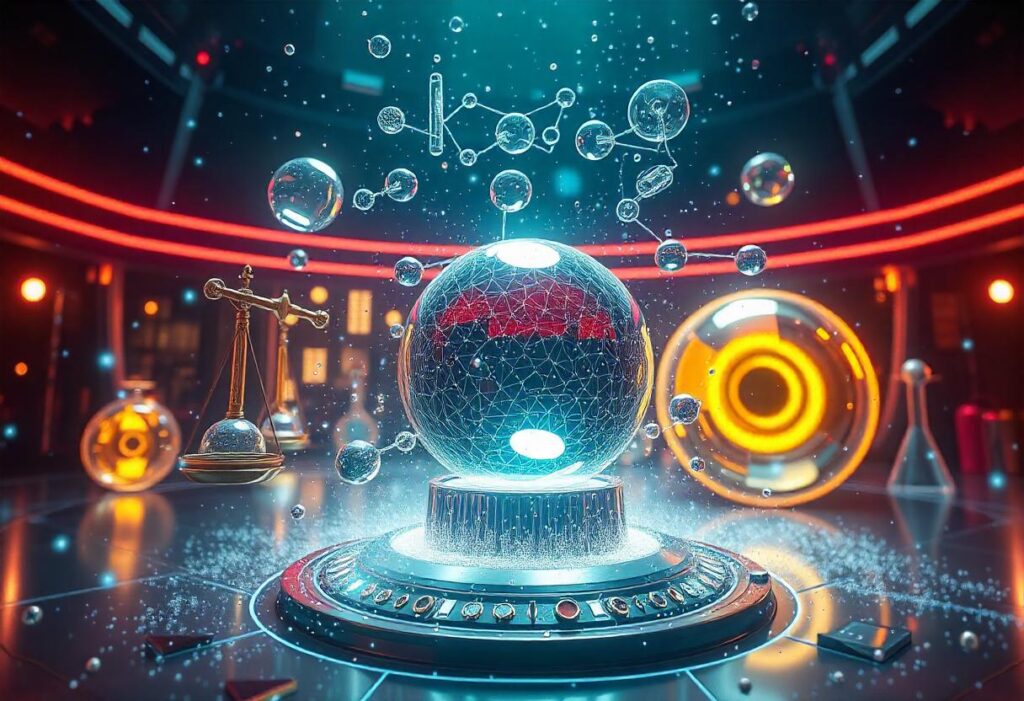Scientific laws are the backbone of understanding how the universe operates. But what exactly are they, and how do they differ from scientific theories? This article takes you through the fascinating world of scientific laws, exploring their importance, development, and application.

What is a Scientific Law?
At its core, a scientific law is a statement that describes an observable phenomenon, usually expressed through mathematical formulas or concise explanations. Think of it as a rule that the universe follows, consistently observed and confirmed through repeated experiments.
Difference Between Scientific Laws and Theories
Here’s where many people get confused. A scientific law explains what happens, while a scientific theory explains why it happens. Laws tell you the “what,” while theories provide the in-depth reasoning behind the phenomena. For example, Newton’s Law of Gravity explains that objects attract each other with a force proportional to their masses and distance apart, but Einstein’s Theory of General Relativity explains why gravity works that way.
Importance of Scientific Laws in Everyday Life
We may not notice it, but scientific laws govern much of our day-to-day existence. From the way your car moves when you step on the gas (thanks to Newton’s Laws of Motion) to how your smartphone works (with help from the laws of electricity and magnetism), scientific laws play a role in nearly every part of modern life.
Historical Context of Scientific Laws
The Evolution of Scientific Understanding
The journey to today’s understanding of scientific laws was far from straightforward. Early humans explained natural phenomena through myths and beliefs. It wasn’t until the Scientific Revolution in the 16th and 17th centuries that thinkers like Galileo and Newton laid the groundwork for scientific laws as we know them.
Key Historical Figures Who Defined Scientific Laws
- Isaac Newton: Known for Newton’s Laws of Motion and Universal Gravitation, Newton revolutionized physics.
- Johann Mendel: The father of genetics, Mendel’s laws of inheritance helped define biological science.
- James Clerk Maxwell: His laws of electromagnetism are fundamental to modern physics.
Impact of Scientific Discoveries on Modern Science
The formulation of scientific laws has propelled technological advancements. From electricity to space exploration, these laws provide the framework for innovation. Without them, our current level of technology would be unimaginable.
Characteristics of a Scientific Law
Predictability and Reproducibility
A scientific law must predict outcomes under the same conditions repeatedly. Whether you drop an apple in New York or Tokyo, Newton’s law of gravity ensures it will fall the same way.
Universality of Scientific Laws
Scientific laws are universal; they hold true regardless of location or time. The laws of motion that apply on Earth also apply on Mars.

Testability and Falsifiability
For a scientific law to be credible, it must be testable and falsifiable. Scientists must be able to test it under different circumstances and demonstrate whether it holds up.
Famous Scientific Laws in Physics
Newton’s Laws of Motion
Newton’s three laws of motion are fundamental to understanding how objects move and interact. From cars to rockets, these laws explain forces and acceleration.
The Law of Universal Gravitation
This law explains why objects with mass attract each other. It’s the reason why you stay grounded and why planets orbit the sun.
The Laws of Thermodynamics
These laws govern heat, energy, and work. They explain everything from why your coffee cools down to how engines work.
Scientific Laws in Chemistry
The Law of Conservation of Mass
Formulated by Antoine Lavoisier, this law states that mass cannot be created or destroyed in a chemical reaction. This principle is fundamental in chemical equations and reactions.
Boyle’s Law
Boyle’s Law describes the relationship between the pressure and volume of a gas, provided the temperature remains constant. It’s essential for understanding how gases behave in different conditions.
Avogadro’s Law
Avogadro’s Law links the volume of a gas to the number of molecules in it, helping scientists understand the composition of gases in any environment.
Biological Laws and Principles
Mendel’s Laws of Inheritance
Gregor Mendel’s work on pea plants led to the discovery of genetic inheritance, forming the basis of modern genetics. His laws explain how traits are passed from one generation to another.

The Law of Segregation
This law describes how pairs of gene variants (alleles) are separated into reproductive cells, ensuring that offspring receive one allele from each parent.
The Hardy-Weinberg Principle
This principle helps scientists understand the genetic variation in populations, showing how allele frequencies remain constant over generations unless affected by external factors.
Limitations and Misconceptions About Scientific Laws
Are Scientific Laws Absolute?
Contrary to popular belief, scientific laws are not absolute. They are based on the best available evidence, but they can be modified or replaced if new evidence contradicts them.
The Role of Assumptions in Formulating Laws
Scientists often make assumptions to formulate laws. For example, Boyle’s Law assumes ideal conditions, but real gases sometimes behave differently.
Misunderstandings Between Laws and Theories
Many people wrongly believe that scientific laws are “better” or more “true” than theories. In reality, they serve different purposes—laws describe, while theories explain.
How Scientific Laws Are Formulated
Observation and Experimentation
Scientific laws often start with observation. A scientist notices something consistent and tests it repeatedly under various conditions to confirm its reliability.

Hypothesis and Testing
Once observations are made, scientists form a hypothesis. If experiments confirm it, the hypothesis can develop into a scientific law.
Peer Review and Validation
Before becoming widely accepted, a scientific law must be peer-reviewed and validated by the scientific community to ensure its accuracy.
The Future of Scientific Law
Are We Discovering New Laws?
Yes, the discovery of new scientific law is ongoing. As technology advances, scientists uncover more about the universe, leading to new laws or revisions of old ones.
How Technological Advances Influence New Discoveries
Inventions like the telescope and particle accelerators allow scientists to observe phenomena that were previously undetectable, opening doors to new laws.
The Role of Quantum Mechanics in Future Scientific Law
Quantum mechanics has already changed the way we understand the universe. Future laws may be written based on quantum principles, affecting everything from computing to space travel.
Conclusion
Scientific laws are vital to understanding how our world works. While they may evolve with new discoveries, their importance in guiding scientific inquiry and technological advancement remains unchanged.
